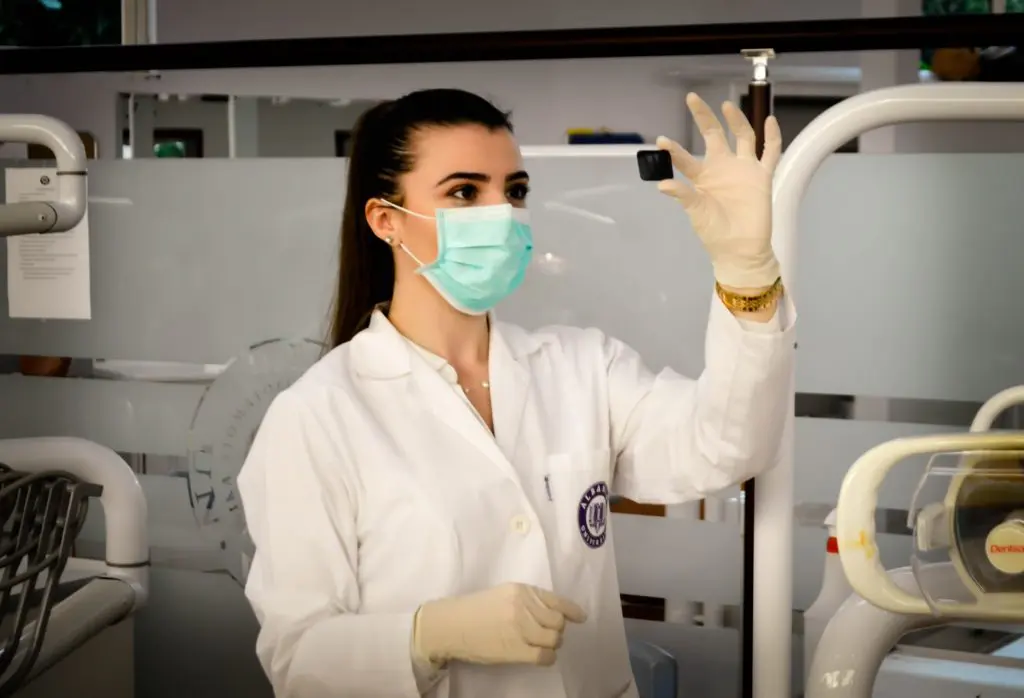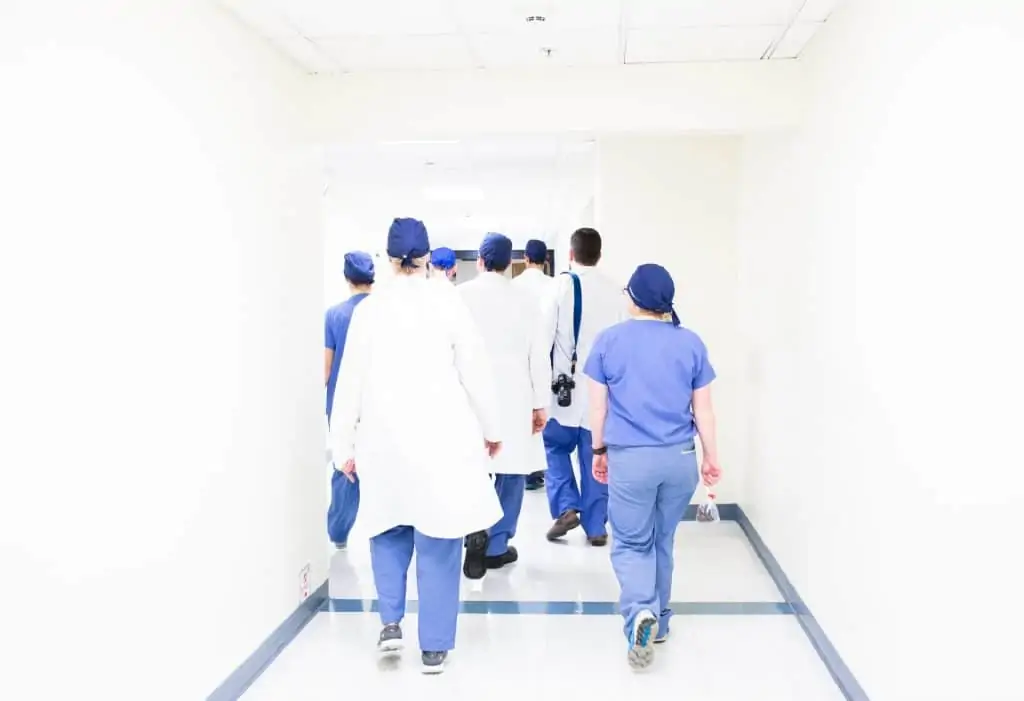Are you applying to medical school to become a doctor? One important question that many prospective applicants should ask is, how long is med school?
Deciding to pursue medical school is a very serious and difficult decision; you want to make sure you have all the details, including how many years of studying to become a doctor you will need.
This article will answer your question on how long it takes to become a doctor. We will give you some insight into what the medical school experience is like and an overview of the medical training program by each of the four years. By the end of this article, you should know what to expect upon entering medical school and thereafter for your residency.
Overall: How Long Does it Take to Become a Doctor?
Now, how long does it actually take to become a doctor?
The honest answer is that you’re probably taking the longest road to a professional career.
But, we understand that accomplishing your prioritized goals are critical to your growth.
So, now that you’ve committed to the idea of becoming a doctor, let’s talk about what you should expect within the context of time.
First, you will need to attend college as an undergrad to complete your pre-med requisites. These are essentially the basic course requirements that every undergrad needs to meet, with the exception of medical sciences (e.g., biology). This will take you about four years, at a minimum, but can take longer, especially if any drastic life events occur.
Basic courses to meet pre-med school requirements typically include the following:
- Biology
- General Chemistry
- Organic Chemistry
- Biochemistry
- Physics
- English
You’re also expected to meet your requirements for your assigned major and other requisites from your institution. Either way, the coursework will take you about four years to complete or more if you need to retake a class.
Potentially, you might have the option to take Advanced Placement (AP) courses in high school that can waive the course requirements listed above. AP courses are essentially college level courses with a final exam that can be accepted for college credit across most schools in the United States (U.S.). Taking AP courses can help minimize the number of classes needed to take in college, taking you less than four years, if you stay hard enough.
After you complete your undergrad and complete your pre-med requisites, you will need to attend a medical school program. The med school program is specific to medical training that abides by the standards of Association of American Medical Colleges (AAMC). Completing medical school usually takes about four years; however, you might expect another year, especially if classes are more difficult than you anticipated.
Now that you’ve completed your pre-med requisites and your medical school training, you will then need to complete your residency and fellowship.
Easier said than done!
Residency and fellowship years are not as arduous as medical school, but are like having full-time jobs. The number of years needed to complete training in residency and fellowships varies by your specialty. However, the minimum number of years can range from 3 to 6 years.
It’s important to consider what specialty field you plan to go into because this will strongly determine the number of years needed to complete medical school with the inclusion of residency. As an example, residency for family practitioners will take three years to complete than a residency for heart surgery, which takes about seven years.
Now that we’ve given you an overview of the pathway to medical school, we still have to answer your question – how long is med school?
At a minimum, you can likely expect about 11 years total of studying to become a doctor to meet your end goal. The amount of work you put in for this process will probably make it feel twice as much, so it’s extremely important that you are seriously committed to this path.
If this is a career path you are passionate about, we strongly encourage you to start researching medical school programs that may interest you. Even better, we encourage you to be strategic about the undergrad programs you select, as well. Some schools have better reputations than others that might facilitate your entry into prominent medical schools.
Additionally, some medical schools may be more prestigious than others, making your attendance to these schools influential on residency and fellowship placement. Remember to be strategic about your selections and to make informed decisions. You should also make sure to set some time apart to explore the curriculums of different medical schools and review their history outside of med school reputation.
How Long is Medical School?
Now that we’ve provided you with an overview of how long it will take to become a doctor, you probably want to get specific details on medical school alone.
So, how long is medical school without the additional steps needed to get there?
Unfortunately, the answer to this varies. It all really depends on what your medical specialty is and what your career goals as a practitioner entail. For instance, are you interested in getting additional training in a fellowship for a specialized training? If you are, then that will take an additional 3-5 years of training after you finish residency.
If we are talking about medical school without residency or fellowships, then it will take you four years total to complete all the coursework and clinical rotations.
It’s extremely important that you conduct some research that provides you with an overview on what you plan to do as a medical doctor. Don’t just go in there without any direction. You’ll need to have a ballpark idea on what specialty you want to pursue, if a fellowship would benefit your interests, and where you would like to end up (e.g., private practice or community clinic).
It’s ok if you don’t have all the details confirmed now, but keep in mind that these factors are what will navigate your steps through medical school, and ultimately, impact how long it will take you to become a doctor.
What is Medical School Like?
Since this is such major life decision, it’s always important to ask other former medical students about their experiences in medical school. We’ve researched some of these sources to collect information on what medical school was like during their training.
Census claims that after the first two years of medical, former students think it actually gets a lot easier to handle the coursework, exams, and other responsibilities. You eventually get into the swing of things. However, many former students shared that the first year will probably be the most difficult since you are immersing yourself into a new curriculum, new structure, new behaviors, and so forth.
Just like anything else, you will need time to adapt to medical school, but will definitely get the gist of things once you are further along in your medical school career.
Former students and medical school professors have also described medical school as the equivalent of having a full-time job. So, it may be difficult to juggle a job position as a medical school student; you would be expected to commit to medical school exclusively because working an additional job would be incredibly difficult.
These constraints may be even more challenging if you have a family. Remember that pursuing this career is a long-term commitment that can directly impact yourself and your family both emotionally, physically and economically. We recommend having open conversations with your family before embarking on any drastic life-changes to pursue a dream.
As for the curriculum, medical school is divided into two sections – preclinical and clinical rotations. The first two years will comprise of the preclinical work; the last two years will comprise of the clinical rotations. You will also need to complete additional assessments along the way.
Let’s go into more detail for each component in the next section.
Year 1 and Year 2: Pre-Clinical Work
The first two years will be course-instructed training where you will likely have to attend classes in an actual classroom. So, nothing too far-fetched from what you’ve already been doing for four years as an undergrad. However, you will be building on your pre-med courses with even more difficult subjects.
The subjects needed to become a doctor will primarily include anatomy, pathology, physiology, internal medicine, and a few others. Most schools require the same subjects so there are little variations across programs. Former students have stated how these are considerably difficult courses and exams, so make sure to find a study group or work with your cohort to create notes and study sessions early on in the semester.
At the end of year 2, you will need to take an exam to demonstrate your competency with what you’ve learned thus far. This exam is called the USMLE Step 1, which is very much like the MCAT, except specific to the medical school curriculum you’ve completed.
One important reminder – scores on your USMLE will be used to determine your placement for residency and fellowship; so these exams are extremely critical to your future training after completing medical school.
For the USMLE, you will need to make sure you prepare for the exam and rest adequately prior to exam day. Many students have expressed anxiety in taking these exams; so just make sure to implement self-care practices into your study habits.
The upside to your first two years is that this is the only time you get a summer break, so make sure to make the most out of it with your family and friends!
Year 3: Clinical Rotations
During your third year, you will begin your clinical rotations. Clinical rotations are essentially the application of all the concepts you have already learned in your first two years. You might even learn more through hands-on experience. With clinical rotations, you are usually shadowing senior doctors (e.g., attendees and residents) to learn from their practices.
One important tip we have for this period in your training is to always ask questions, no matter how stupid you think they might be. These questions might guide you on your USMLE exams!
Depending on your medical program, you are usually rotating around a variety of specialties to get a feel for each field. This will also ultimately help you decide on what your preferences are as an aspiring doctor. Clinical rotations will include family medicine, general surgery, psychiatry, emergency medicine, internal medicine, primary care, pediatrics, cardiothoracic surgery, and others.
The fun part is that you also get to choose an elective. You can try to be strategic about your elective so that you gain experience in a field that cultivates your interest. Make sure to see what every medical program has to offer as electives might vary by programs and resources.
Additionally, students’ experiences with clinical rotations can vary. Former students have shared how you might be one of many students in a particular clinical rotation in a busy, bustling clinic. At other times, you might be the only student in the clinic, with hardly any patients seen throughout the week.
These distinctions in experiences don’t necessary mean that your clinical rotation will be easier or more difficult at all. We just mean to say that your clinical rotations will ultimately depend on your supervisor, the location (e.g., city or rural area), and the specialty.
Ultimately clinical rotations are designed to test your competence and hone your decision-making skills as a novice practitioner. That is, there may be times when there aren’t actually any guidelines, and you will need to act on your best judgment based on what you have been trained with throughout medical school.
That form of leadership and independence can be unnerving as a young professional.
But, doesn’t it sound exciting and purposeful?
Aside from your clinical rotations, you will also need to continue studying for your next exam, USMLE Step 2 Clinical Knowledge (CK) or USMLE Step 2 Clinical Skills (CS). After completing year three, you will need to take one part of the test. Again, USMLE scores determine your placement in residencies and fellowships, so make sure to take these assessments seriously!
USMLE Step 2 CK and CS typically include topics on internal medicine, pediatrics, psychiatry, surgery, gynecology, preventative medicine, etc. You’ll want to make sure you are studying your material throughout your clinical rotation, as the two go hand in hand for your examination. Again, ask your supervisor as many questions as possible for clarification; make sure to use all the resources available to you to score well on the exam!
Year 4: Final Year and Matching
Year four is similar to year three. You are completing the remaining requirements in your clinical rotations, along with any electives you’ve selected. You are also required to complete the second part of USMLE Step 2 (either CS or CK).
During year four, many former students have shared that you will have more independence in selecting your field work and in working with patients. This is probably because you’ve had time to garner skills and sharpen them in applied work.
Now, you are to ready for residency.
What Happens After Med School?
After med school, you will need to jump a few more additional hurdles to officiate yourself as a practicing doctor. The good news is that once you have completed your residency, you become eligible to apply for a medical license. You will need to get licensed to practice medicine in your state lawfully.
It’s important that we note that your medical license only applies to your current state, so you will need to reapply to practice in another state outside of your current residence. This rule applies to all facilities, including private practice, community hospitals, or clinics.
You will also need to get board certified by the American Board of Physician Specialties (APBS). Board certification is usually a multiple-choice format exam with oral examinations (depending on the specialty). After completing this, you will be board certified for 6 -10 years; meaning, you will need to get certified again after expiration.
Finally, you’ll be able to practice medicine! While you might be looking at a hefty student loan repayment, you’ll now have reached your aspirations of becoming a doctor. You will also be employed in a career with salaries that start off at over $200,000.
Wrapping Things Up: How Long is Med School?
Deciding to become a doctor is not an easy feat, but we ultimately commend you for pursuing your career goals! At this point, you should know more about how medical school requirements, how many years of studying to become a doctor to expect. We also walked you through what medical school will be like throughout your four years.
The important thing to remember is that medical school is a challenging path not taken by many, but do not let that deter you. Your passion will be sure to drive you through the arduous paths of medical school.
If you found this post helpful, you’re definitely going to like our other medical school tips here.
















